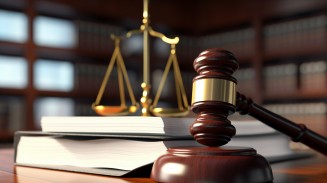A federal judge in Brooklyn backed up Apple in its encryption battle by ruling that the U.S. government cannot force the tech company to bypass the user-generated password of an iPhone owned by a criminal defendant in a drug case.
The government has been trying to access the iPhone from the Brooklyn drug case since October, several months prior to the recent order by a California judge for to have Apple hack into an iPhone used by one of the shooters in the San Bernardino attacks.
New York Daily News reported Judge James Orenstein ruled that the government's lawyers failed to establish convincing proof of the applicability of the All Writs Act in the drug case, which is the same law the FBI is invoking for the San Bernardino case.
Orenstein stated that the All Writs Act finds no application in the case, and does not necessarily resolve the issue and other similar cases. Moreover, he is of the contention that he does not have authority and jurisdiction to order Apple to unlock the security feature on the iPhone involved in the Brooklyn drug case.
"The implications of the government's position are so far-reaching - both in terms of what it would allow today and what it implies about Congressional intent in 1789 - as to produce impermissibly absurd results," Orenstein stated in his decision.
The phone in question belongs to Jun Feng, who pleaded guilty to methamphetamine distribution. However, the government still wants to look at Feng's iPhone as investigations on the suspect's customers and sources continue.
Although Judge Orenstein's ruling is not a well-settled rule among courts and thus does not make it binding with the magistrate judge in California handling the San Bernardino Case. Even so, Apple is confident that Orenstein's decision will help the tide turn in the company's favor, Reuters noted.
According to USA Today, the Department of Justice is reportedly disappointed by Orenstein's ruling and is planning to file an appeal.
Department spokesperson Emily Pierce said that Apple has agreed to give the government access to the iPhone owned by Jun Feng, but only change its mind when the now-disputed California order went public.
The ruling rendered by Judge Orenstein is a minor victory for Apple in its case against the FBI in relation to the San Bernardino shooting investigation. The tech giant refused a court order to unlock the iPhone used by Syed Rizwan Farook, one of the San Bernardino shooters. Apple stood firm in protecting the rights of its customers from possible arbitrary data access by the government.
The 1789 All Writs Act gives judges the authority to resort to necessary measures to enforce their own orders in exceptional cases.
© 2023 Lawyer Herald All rights reserved. Do not reproduce without permission.
Get the Most Popular Lawyerherald Stories in a Weekly Newsletter





